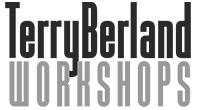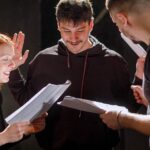Written by Terry Berland @berlandcasting for Backstage Industry Expert Advice.
We all know the importance of improv for actors—but did you consider that improv can also help you in your voice-over career?
Here are five ways improv will make you a better voice-over actor. Sometimes the importance of the ability to improv is not obvious and others.
1. Auditioning
You might be given totally different direction from the casting director than the choices with which you went into the audition. Direction is all about nuances and requires the ability to instantaneously switch out of your choices.
2. Radio Auditions
Radio is more personality driven than television, and can allow opportunities to be loose and broad and add your own individual humor. And two-person radio scripts almost always give you room to riff back and forth a couple of times to button off the audition.
3. Voicing Donuts and Pretzels
There are times your voice has to come between other visuals or music in the script. Your voice coming in once between other actions, visuals, or music is called a donut (one hole), and several times is called a pretzel. You have to react very quickly to the last sound or visual prompt, and the director can very well tell you to change your attitude in the words you are fitting into the allotted spaces. You’ll be happy you can only rely on your well-trained improv muscle in these situations.
4. Animation and Cartoons
Both are extremely personality driven and move very quickly. The improv muscle in your brain will again allow you to create without judging yourself.
5. ADR and Looping
These two venues have many opportunities that are not scripted and you have to come up with conversations quickly to match the feel of the scene in the background of the film or TV show. No one can be considered on an ADR/looping stage who is non-scripted or is not good at improv.
With good improv skills, you can be sure to have better voice-over auditions and bookings!
If you want to sharpen up on your voice-over technique, follow this link to Terry Berland’s Voice-Over workshops.









